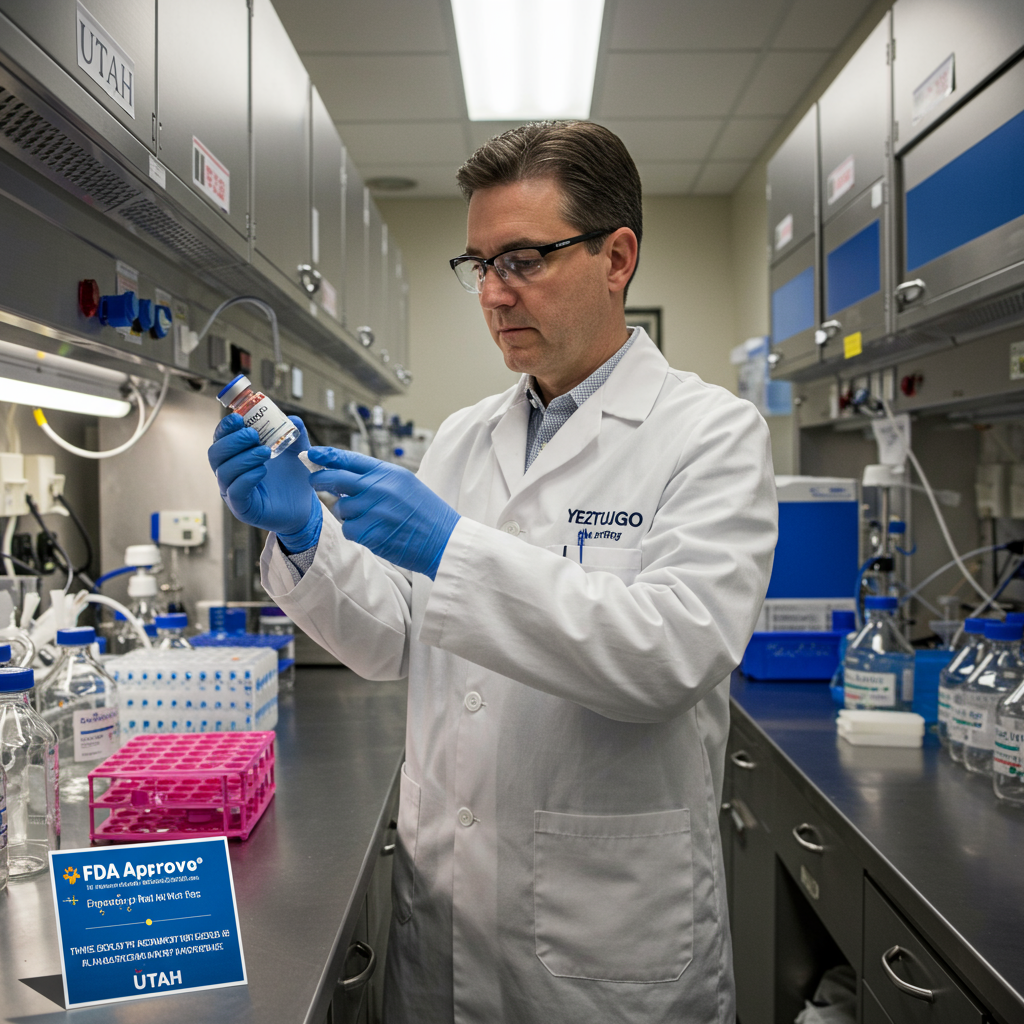A groundbreaking new option in the fight against HIV has received approval from the U.S. Food and Drug Administration (FDA). This long-lasting prevention drug, lenacapavir, is rooted in decades of fundamental research conducted at the University of Utah.
The FDA’s decision marks a pivotal step, bringing a highly effective, injectable prophylactic measure against HIV, the virus that causes AIDS, to the U.S. market. Marketed under the brand name Yeztugo for prevention, the drug was developed by California-based pharmaceutical company Gilead Sciences.
Lenacapavir has already garnered significant attention, having been named the “Breakthrough of the Year” by the prestigious scientific journal Science, which hailed it as a major step toward diminishing the global HIV/AIDS crisis.
The Foundation: University of Utah Research
The development of this innovative drug stems from the pioneering work of University of Utah biochemist Wesley Sundquist, who also serves as co-chairman of the university’s Department of Biochemistry. Sundquist’s foundational research, which began in the late 1990s, focused on understanding the intricate molecular structure of HIV.
His team painstakingly purified and analyzed the protein shell that encases the virus’s genetic material – known as the capsid. Through this detailed study, they mapped out what the capsid looks like and how it assembles. A critical discovery was just how sensitive this viral shell is; even minor alterations to its protein components significantly hindered the virus’s ability to replicate.
This key insight suggested that targeting the HIV capsid could be a highly effective strategy for developing new antiviral drugs.
How the Drug Works and Its Key Advantages
Sundquist’s discoveries captured the attention of Gilead Sciences, prompting the company to search for compounds that could specifically target the HIV capsid. Sundquist consulted with Gilead during this process, which ultimately led to the creation of lenacapavir.
Unlike many existing HIV treatments that act later in the viral lifecycle, lenacapavir works by binding directly to the viral protein shell. This unique mechanism prevents the capsid from assembling properly and stops the virus from effectively entering the nucleus of host cells to replicate.
A major advantage of lenacapavir over previous HIV prevention methods is its long duration of action. While existing pre-exposure prophylaxis (PrEP) often requires daily pills, lenacapavir is administered via injection, providing protection against HIV transmission for six months with a single dose – effectively requiring only two injections per year. This long-lasting nature is expected to significantly improve adherence compared to daily regimens.
Remarkable Clinical Trial Results
The drug’s efficacy has been demonstrated in large-scale clinical trials, particularly in regions with high HIV prevalence. Studies conducted in South Africa and Uganda involving over 2,000 women showed truly remarkable results: not a single woman who received a dose of lenacapavir contracted HIV over the course of the study.
Sundquist described this outcome as “amazing,” highlighting that the drug “almost completely prevents the transmission of HIV into at-risk populations.” Follow-up trials in other populations, including men and nonbinary individuals, have further confirmed its effectiveness. With approximately 31,000 new HIV infections still occurring annually in the U.S. and 1.3 million worldwide, the potential for lenacapavir to significantly reduce these numbers is immense.
Recognitions and Future Directions
Beyond the drug’s approval, Sundquist’s profound contributions have earned him widespread recognition. In the same week the FDA approved lenacapavir, he was awarded the prestigious 2025 Warren Alpert Prize from Harvard University. Earlier in April 2025, he was named one of Time magazine’s 100 most influential people in the world, sharing the recognition with a collaborator from Gilead Sciences.
Sundquist views his lab’s work as being driven by curiosity and the desire to discover unknown mechanisms, contributing “feedstock for new ways of approaching medicine.” He emphasizes that scientific breakthroughs are a “team sport,” crediting the many students and collaborators who contributed over the years.
Despite these successes, Sundquist stresses that the work against HIV is far from finished. While lenacapavir offers powerful prevention, the ultimate goal remains a preventative vaccine that could offer universal protection to everyone. Developing such a vaccine, however, continues to be a significant scientific challenge. Meanwhile, Gilead is reportedly exploring even longer-acting formulations of lenacapavir, potentially offering protection for a full year.
The FDA’s approval of lenacapavir represents a significant leap forward in HIV prevention, bringing a potent, long-acting tool forged from fundamental university research to the forefront of global health efforts.




